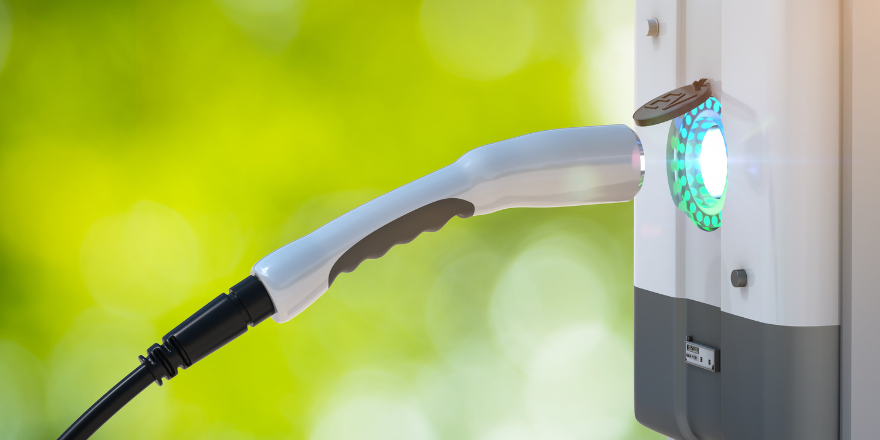Electric school buses are one of the most talked-about aspects of the student transportation industry today. Recent rounds of federal funding have spurred massive interest in EVs, leaving transportation directors and school bus contractors across the country to sort out when and how to add electric vehicles to their existing fleets. With so many variables at play, we’re breaking down what to consider when switching to electric buses, to help you supplement your fleet at the right time, in the right way.
Why isn’t everyone using EV school buses already?
Infrastructure requirements and charging time
For starters, before you can add an electric school bus to your fleet, there’s got to be a charging station in place. This might involve not just installing the charging infrastructure but upgrading your terminal’s entire electrical system as well. Before your first EV school bus arrives, develop a detailed plan that considers the time, expertise, equipment, and money needed to install charging stations at your terminal.
Charging time is another serious consideration. We’re seeing advances in EV technology every year, so charging times are likely to shorten as the charging and battery technology improves. At present, though, school districts need to be absolutely sure that reliable, ready transportation is available to their students at all times, in case early release or evacuation is required.
For districts that want to begin transitioning to EV school buses, consider starting slowly with a mixed fleet of a few EV buses and more traditional diesel buses.
Range
One major consideration before making the move to an EV fleet is whether the range of your electric bus will serve your district efficiently. As we mention above, battery technology is improving. However, some electric buses still travel only 100 to 150 miles on a single charge – and that number depends in part on both battery size and weather conditions. For rural districts in particular, this could make EVs a less desirable choice – at least for now – than high-efficiency diesel buses, since reliability is one of the fundamental qualities school bus contractors are striving for.
Costs
There’s no easy way to say it: Electric school buses are expensive, even with government incentives, and the upfront cost can be a barrier for contractors and transportation directors. However, as overall production of EV buses scales up over time and the technology improves and becomes more readily available, the cost per unit will likely come down.
And while electric buses may require less maintenance and repairs during the vehicle’s lifetime, the cost of replacing battery packs can be high. Add to that the expense of training or hiring technicians who can confidently repair EV school buses, plus the outlay for infrastructure mentioned above, and you could be looking at some significant upfront investments.
Benefits of moving to electric school buses
Cost savings
We’ve talked about the expenses; let’s discuss the savings. Yes, the initial cost of an electric bus is higher than a new, traditional diesel bus, but EVs differ from diesel because they have greater potential to save money in the long run.
For starters, electric buses have fewer moving parts, which may translate into fewer repairs and lower maintenance costs over time. Technicians may spend less time under the hood, and as EVs become more common, the supply chain for EV parts may be easier to manage.
In addition, contractors could see lower fuel costs per mile, since the price of electricity is typically lower than that of diesel fuel.
Environmental impact
The decreased environmental impact of an EV fleet is an amazing benefit. Electric school buses emit zero tailpipe emissions, which can greatly reduce air pollution and improve air quality on and around school grounds. There’s also at least one study that connects lower exposure to diesel emissions to higher student test scores.
These environmental benefits make a strong case not only for EVs, but for more efficient, lower-emission diesel buses as well. Ultimately, the more environmentally friendly your fleet is, regardless of how it’s powered, the better off your community will be.
One other environmental benefit: If the electricity used to charge your EV buses comes from a renewable energy source such as solar or wind, that’s an earth-friendly advantage over traditional-fuel buses, making them an even cleaner option.
Comfort
Electric school buses operate quietly and smoothly, providing a more comfortable, peaceful ride for students. A quieter engine may also make it easier for school bus drivers to hear what’s going on both inside and outside of the bus, contributing to a safer environment for our young passengers.
And finally, switching to EVs reduces noise pollution from buses traveling through residential areas, along school bus routes, and near school grounds – a win for parents, students, drivers, and school personnel.
Should you switch to electric school buses?
Ultimately, whether or not to switch to electric school buses depends on the specific needs and circumstances of each contractor, transportation director, and school district.
For districts with short, predictable routes and access to charging infrastructure, electric school buses could provide significant environmental and cost benefits. However, for districts with longer routes and limited charging infrastructure, the upfront costs and operational adjustments may move EV adoption onto a longer timeline.
Before making the decision to switch, contractors and school transportation directors should work with a trusted partner to carefully evaluate their district’s needs, to ensure the move to EVs is a smart and sustainable investment in their student transportation program.
Contact us
Ready to learn more about fleet management and how electric school buses could enhance your student transportation program? Reach out to us.
American Student Transportation Partners (ASTP) is a national network of reliable student transportation providers. We’re driving the future of student transportation by providing access to education through safe, dependable student transportation programs. Exceptional bus operators choose ASTP because of our innovative approach to partnership, as well as the resources we provide to help “future-proof” their operations.
To learn more about partnering with ASTP, contact Tod Eskra, President, at [email protected] or call (314) 560-5946.

